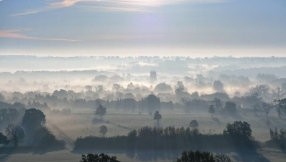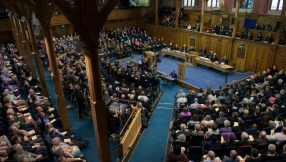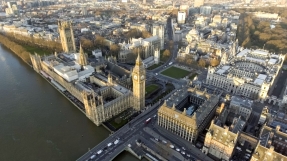
(CP) A little over three-quarters of British citizens are in favour of banning pro-life protests outside abortion clinics, according to the recently released findings of a survey.
According to a YouGov UK poll released earlier this month, 77% of British citizens approve of banning protests that occur in the "immediate surroundings of abortion clinics," while 14% oppose banning them and 9% are not sure.
Support for a ban on abortion clinic protests was slightly higher for women than men, with 81% of female respondents expressing support for a ban, versus 76% of male respondents.
The poll found that 49% of respondents supported the current legal limit of allowing elective abortion up until 24 weeks into a pregnancy, with only 25% of respondents saying it should be pushed back to earlier into a pregnancy.
On a related question, 65% of respondents said that they support allowing abortion for any reason for up to 24 weeks into a pregnancy, with 16% saying it should only be available during that time for "specific circumstances, such as disability or risk to the health of the mother."
The poll results were derived from a survey of 2,098 Britons conducted Sept. 28-29, with no margin of error listed.
In recent times, there have been efforts in the United Kingdom to ban pro-life demonstrations and vigils held near abortion providers by creating buffer zones around clinics.
Last December, the United Kingdom Supreme Court upheld a law passed in Northern Ireland that prohibits demonstrations near abortion facilities, with the court arguing that "this restriction can be justified" as it "pursues a legitimate aim."
"It seeks to ensure that women have access to advice and treatment related to the lawful termination of a pregnancy under conditions which respect their privacy and dignity and are not driven instead to less safe alternatives," wrote U.K. Supreme Court President Robert John Reed for the court.
"It is also designed to enable staff who work at hospitals and clinics where terminations are available to attend their place of work without being intimidated, harassed, or abused."
Activist Isabel Vaughan-Spruce faced a months-long legal battle after she was arrested for silently praying outside an abortion clinic in Birmingham, England.
In September, West Midlands Police announced that, following a six-month investigation, they would not bring charges against Vaughan-Spruce for her silent prayer.
"The arduous process of this criminal ordeal has been the punishment for Isabel. Moreover, her story has put the world on notice that fundamental freedoms are vulnerable in the UK," said Jeremiah Igunnubole, legal counsel for the U.K. chapter of the Alliance Defending Freedom, who helped to represent Vaughan-Spruce, in a statement released in September.
"There is now an urgent need for legal changes to stem the tide of policing by politics. We hope the decision from West Midlands Police that they will not prosecute free thought, alongside the Home Secretary's public commitment to protecting silent prayer, will be reflected in legislation, guidance, and practice."













